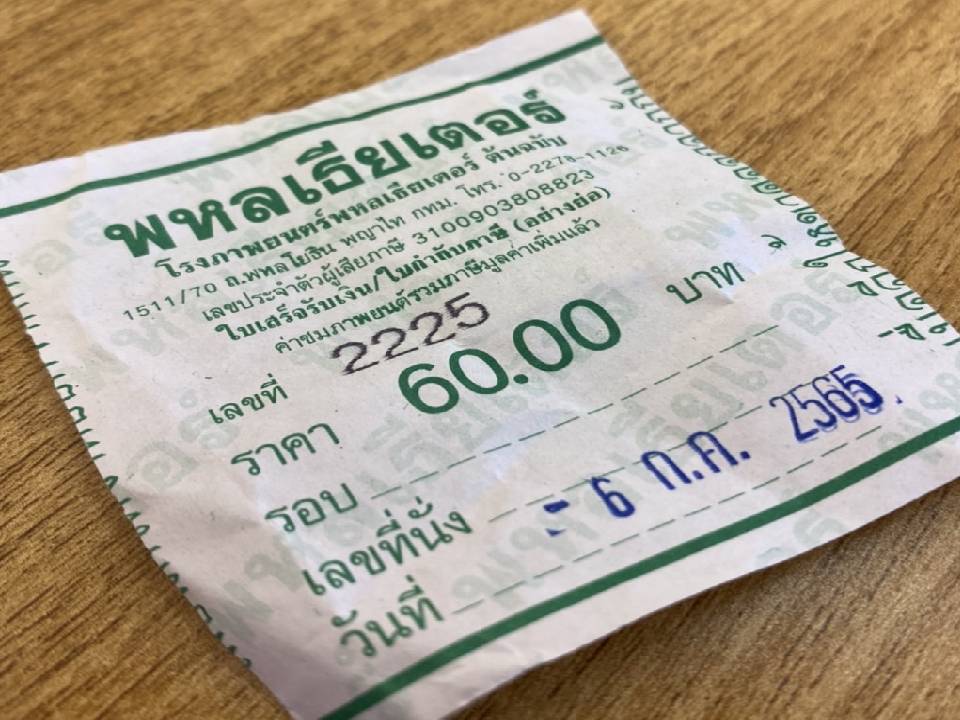【公告】131024聲明:同志諮詢熱線如何看待男同志社群的藥物使用議題
2013-10-24【台灣/踏青出遊】131116 彩虹熟年巴士─歡‧宜‧香之旅
2013-10-27131026 BBC中文網:台北彩虹大遊行主推社會支持同志權利 附圖輯/路透社:Tens Of Thousands March For Same-Sex Marriage In Taiwan/法新社:Thousands march in Taiwan for same-sex marriage/附台灣媒體外文報導
SongYY說明:
台灣同志遊行的消息,亦見於國外媒體的報導。中國媒體如中國新聞網以及澳門電台Qoo News主要引用中央社的報導;BBC中文網則由特約記者顏思祺以中文報導遊行以及多元成家法案最近的狀況,並有圖輯紀錄遊行不同面向。
英文報導中,各國引用最多的為路透社與法新社的報導;路透社以多元成家議題訪問了遊行主持人、熱線呂欣潔與總召梅子,也訪問了來參加遊行的南韓團體,並比較了中國和台灣同志社會處境,就此議題採訪了《囍宴》編劇馮光遠。法新社報導中則由遊行發言人Albert點出遊行主題,報導主軸亦擺在多元成家,採訪對象包括參與遊行的張小毛以及推出法案的伴侶盟,並回顧了今年稍早陳敬學對同性婚姻提出的行政訴訟。除此之外,台灣媒體Taipei Times以及中央社的英文報導亦一併轉貼,提供參考。

台北彩虹大遊行主推社會支持同志權利
2013年10月26日 嚴思祺 BBC中文網台灣特約記者
第11屆台灣同志大遊行周六(10月26日)下午在台北舉行,吸引日本、南韓、香港、泰國、馬來西亞和歐美人士參加,同志在裝扮上盡情揮灑,展現自我,現場氣氛熱鬧滾滾,有如嘉年華一般。
台灣同志遊行聯盟發言人Albert Yang接受BBC中文網訪問時表示,今年主題是「看見同性戀 2.0:正視性難民、斗陣來相挺」,用以凸顯第一屆遊行迄今社會環境與觀念仍然停滯不前,希望受到壓迫的朋友一起站出來,讓社會正視現有體制不公,以爭取公平正義的分配。
Albert Yang指出,從第一屆參加人數不到一千人、戴面具出席,到今年上萬名同志勇於以真面目示人、互相看見並且彼此支持,足見已有相當的進步,但台灣社會仍然沒有全盤接受同志,污名化的情況依然嚴重,加上政府缺乏共識,以致同志追求平權之路仍然漫長且充滿艱辛。
遊行依彩虹七彩分成7個大隊依序行進,參與遊行者在台北周末午後陽光下,大大方方走在馬路上,為本身的權益發聲。各色隊伍利用顏料及海綿,將掌印蓋於白布條,回到終點再將布條搭建彩虹地景,象徵同志平權運動的精神。
台灣性別不明關懷協會更以裸身行動,表達捍衛性別平等要求。
去年公開出櫃的香港藝人何韻詩、黃耀明、林逸欣、阿超等藝人,也都到場聲援。
同性婚姻合法化遊行前夕,民進黨立法委員鄭麗君等22人提案聯署的「《民法》親屬編、繼承編部分條文修正草案」,已交付立法院司法法制委員會審查。草案中明訂,婚約應由不分性別、性傾向、性別認同之雙方當事人自行訂定,而且同性伴侶也可以收養子女,為台灣同性婚姻合法化邁出一大步。
台灣現行《民法》規定,辦理結婚登記須一男一女,不允許同性結婚。
鄭麗君表示,不論性向如何,都有結婚成家的權利,這次推動修法就是為了消除歧視,追求平權。她指出,民主必須是多元平等的,法律應該保障人權,不應成為歧視的來源。
社團法人台灣伴侶權益推動聯盟(伴侶盟)理事長許秀雯指出,同性伴侶所組成的家庭存在於台灣社會,現行法律卻拒絕看見「他們」,讓他們無法獲得法律上最基本的承認,基本人權遭到剝奪。
民進黨籍立委尤美女強調,從人權角度保障同志權益,專家學者大多肯定認同,希望社會大眾不要過於恐懼,也勿污名化,而應理性對話。
提案立委鄭麗君表示,因為國會最大黨國民黨籍立委目前並沒有參加聯署,使得修法平添變數,希望能不分藍綠、爭取跨黨派支持。
鄭麗君希望立法院年底前,由跨黨派立委舉辦3場公聽會,達成修法的共識。
2006年,民進黨籍立委蕭美琴草擬的《同性婚姻法》草案,遭到以國民黨為首的立委連手阻擋,未能順利通過一讀付委,退回程序委員會。
台灣社會對同志普遍給予尊重,但同志仍難逃異樣眼光,若要贏得法律上的認可,可能還有一段長路要走。
新聞出處:http://www.bbc.co.uk/zhongwen/trad/china/2013/10/131026_taipeigaypride_ysc.shtml

圖輯:2013年台北彩虹同志大遊行
(SongYY說明:這是BBC中文網上的遊行相片專輯中,記者為每張照片所寫的註解,記錄下許多遊行的訴求,故特將這些註解文字彙整在一起。至於原圖,請連結到原網頁瀏覽。)
每年的台北彩虹大遊行,少不了了就是穿著奇裝異服參加這場類似嘉年華會的活動,但是今年的主題」看見同性戀 2.0:正視性難民、斗陣來相挺」,卻是強調同志權利在台灣停滯不前。(相片:BBC中文網台北特約記者嚴思祺)
參加者當中有不少是學生,隨著社會風氣的開放與接受度提高,年輕的學生也比較敢面對自己的性傾向,走上街頭。今年參加人數估計可以算是「萬人大遊行」。(AP)
世界各地的同志彩虹大遊行都會出現露點、穿著清涼的吸眼球「猛男」,台北的彩虹大遊行據稱規模是亞洲最大的,每次都會吸引大批日本、韓國、泰國、香港、馬來西亞等地的同志參加(AFP)
有些團體的訴求方式就相當嚴肅,例如爭取跨性別群體權利的性別不明關懷協會,強調不應該一定要經過變性手術才可以更改身份證明上的性別。(照片由網友吳伊婷提供)
同志運動中也有許多是關注社會運動的,所以遊行也出現了反對興建核電廠、反對政府強制拆遷等等議題的隊伍,將同志運動和社會運動結合在一起(AFP)
雖然訴求主題不輕鬆,但是遊行的氣氛活潑、快樂,還有藝人的表演,多位演藝人員也表達了他們支持同志運動的立場。(相片:BBC中文網台北特約記者嚴思祺)
新聞出處:http://www.bbc.co.uk/zhongwen/trad/multimedia/2013/10/131026_pg_taipeipride_parade.shtml
Tens Of Thousands March For Same-Sex Marriage In Taiwan
TAIPEI, Oct 25 Reuters (路透社) By Michael Gold
Tens of thousands of demonstrators, many displaying rainbows and glitter, thronged the centre of Taiwan’s capital on Saturday to press demands to legalise same-sex marriage amid an increasingly tolerant environment on the island nation.
Organisers and participants said they were heartened by the prospect of same-sex marriage becoming a reality, despite enduring traditional attitudes among many residents.
Taiwan’s legislature on Friday began a review of a gay marriage bill, which has the support of 53 percent of the public, according to a recent opinion poll, though acceptance of a gay family member remains low.
"Chinese families are still very traditional," said Jennifer Lu of the counselling group Taiwan Tongzhi Hotline Association and one of the hosts on the centre stage. "People still emphasise having an heir and passing on the family name."
On a cool autumn day, the 11th annual parade was marked by colourful costumes, plenty of exposed skin, musical performances and vendors lining the route to and from the city hall.
Spokeswoman Meico Tsai praised the liberal attitudes that have put Taiwan far ahead of its neighbours in terms of tolerance of gays. "Compared to other Asian countries, we’re more open, but we still have a long way to go," she said.
Sexual-orientation education is a part of the primary school curriculum and LGBT individuals enjoy legal protection from hiring discrimination and other forms of prejudice.
"Korea is much more conservative," said South Korean national Carmen Yoon, a first-time attendee. "I hope Taiwan will legalise gay marriage and we can follow their example."
Taiwan, where Chinese nationalist forces fled after being defeated by the Communists in 1949, is a self-governing nation that is claimed by China. A former dictatorship, it underwent a peaceful transition to democracy in the 1980s and has developed one of the most thriving civil societies in Asia.
Mainland China maintains a largely indifferent attitude toward LGBT issues as cities boast thriving yet underground gay cultures. Legal protections are virtually nonexistent and though gay marriage has been proposed in Beijing’s rubber-stamp parliament, it has never been placed on the agenda.
New Zealand became the first country in the Asia-Pacific region to permit same-sex marriage this year and the Australian Capital Territory approved the measure this week.
Neil Peng, co-writer of "The Wedding Banquet", an early film focusing on a same-sex relationship, said Taiwan’s gay community had been helped by uncensored discussion in the arts.
He pointed to the effect throughout Chinese-speaking countries of the best-selling book "Crystal Boys".
"These kinds of works force people to face facts," he said.
新聞出處:http://www.reuters.com/article/2013/10/26/us-taiwan-same-sex-idUSBRE99P05920131026
Thousands march in Taiwan for same-sex marriage
2013-10-26 AFP(法新社)
Tens of thousands of people rallied in Taiwan on Saturday in Asia’s largest gay parade, as the island’s parliament was set to review a bill on same-sex marriages.
Holding rainbow flags, colorful placards and balloons, participants from Taiwan, several Asian countries, the United States and Europe marched the streets in a bustling business district in Taipei for the 11th annual parade, organizers said.
"This year’s theme is ’The voice of sexual sufferer’, which was the main appeal for our very first parade. We want to show support for those who are still suffering or being discriminated against for their sexualities," said Albert Yang, a spokesman for the event.
The rally came as Taiwan’s parliament on Friday decided to begin reviewing a bill to amend the Civil Code in order to allow same-sex marriages. The bill, proposed by opposition Democratic Progressive Party lawmakers, will be discussed by the parliament’s judiciary committee.
"For me legalizing same-sex marriages is the most important issue because it will mean a big step forwards for equal rights. I hope the parliament will pass the bill soon," said Chang Hsiao-mao, a 24-year-old service industry worker who came with 200 others he met on Facebook.
Gay and lesbian groups in Taiwan, one of Asia’s more liberal societies, have been urging the government for years to make same-sex unions legal.
The advocacy group, Taiwan Alliance to Promote Civil Partnership Rights, which drafted the bill on legalizing same-sex marriage and civil partnership, has said it was optimistic as public support in Taiwan has been growing amid a global trend to recognise such unions.
Last year, around 65,000 gays and lesbians and their supporters marched in Taiwan in a record turnout to push for legalizing same-sex marriage, according to organizers.
However, the campaign suffered a setback in January when Chen Ching-hsueh and partner Kao Chih-wei dropped their appeal to an administrative court against a government agency which had rejected their marriage registration in 2011.
Chen said he had "lost his faith in the judiciary" but added that death threats to him and his parents via Facebook had been among factors prompting him to abandon the appeal.
新聞出處:http://www.france24.com/en/20131026-thousands-march-taiwan-same-sex-marriage

Thousands take to Taipei streets for gay pride event
2013-10-27 Taipei Times By Loa Iok-sin / Staff reporter
Tens of thousands of people yesterday took part in the annual gay pride parade in Taipei, calling on the public to give more support to equal rights not only for lesbian, gay, bisexual and transgender (LGBT) people, but also for all sexual minorities.
Not long after the parade departed from the square in front of Taipei City Hall, participants were asked to leave their palm prints with rainbow colors on the “wailing wall of the rainbow”— essentially six large white banners that bear the slogans “no to sexual oppression,” “no to discrimination,” “condemnation against bullying,” “I want my fundamental rights,” “I want my civil rights” and “I support diversity in family formation” — hoping to raise awareness among the public about sexual oppression and discrimination.
The crowd carried the banners with them after dying them with the colors of the rainbow as they marched.
As many as 60,000 people took part in the parade, with more than 4,000 from abroad, organizers said.
“Equal rights is everybody’s business, not just LGBT people’s,” said a woman who wished to be known as Jenny and participated with her husband and their son. “We’re taking our son to the parade, because we want him to learn the importance of respecting sexual diversity.”
Hong Kong singer Anthony Wong (黃耀明), who publicly came out last year, also took part in the parade, and spoke to the crowd after the parade returned to the square in front of Taipei City Hall a little after 4pm.
Recalling his youth, the 51-year-old singer said that it was difficult to be gay in the 1980s, when Hong Kong society was very conservative regarding homosexuality, calling himself a “sexual refugee.”
“During that time, I could only take refuge at places where other LGBT people gather, such as the New Park,” Wong said, referring to the nickname of the 228 Peace Park in Taipei, which used to be a popular gathering place for LGBT people at night.
“Decades have passed. I’m glad that today, when I come to Taipei, I no longer have to hide in the New Park at night; rather, I can be here in front of the Taipei City Hall during the day,” he said. “Although Taiwan and Hong Kong may face different political and social challenges, I believe that we should go hand-in-hand in the global movement for equal rights, because we share the same objective.”
Tsai Yu-lin (蔡育林), who came to prominence after organizing a sex party in a private train carriage, showed up to voice his support for legalizing same-sex marriage.
“Love is not something that can be restricted by the law, and if the law makes people suffer instead of bringing happiness to the people, it should not exist,” Tsai said.
“Many homophonic people consider homosexuality a disease, and therefore say that homosexuality or same-sex marriage should be prohibited by law,” he said. “Well, as I am afraid of suffering a stroke, can I ask lawmakers to make a law to prohibit strokes, so that no one will ever suffer one?”
Representatives from other sexual minority groups — including bisexuals, intersexuals and handicapped homosexuals — also appealed to the crowd for protection of their rights, saying such groups are sometimes “minorities among minorities” when compared to mainstream LGBT groups.
新聞出處:http://www.taipeitimes.com/News/front/archives/2013/10/27/2003575467

Tens of thousands join LGBT Pride Parade in Taipei
Taipei, Oct. 26 (CNA 台灣中央社) 2013/10/26
Tens of thousands of gay rights supporters on Saturday took to the streets in Taipei for the LGBT Pride Parade, the largest such event in Asia calling for an end to discrimination against people who are lesbian, gay, bisexual or transgender.
Sporting colorful costumes and cross-dressing, the participants at the 11th Taiwan LGBT Pride Parade showed their support by making a hand print on a large white banner, using six different colors that represent different human rights, including the right not to be bullied and the right to have diverse partnerships legalized.
More than 10 different musical and dance performances were given. And nearly 20 social movement organizations were introduced during the parade to share their ideas related to HIV, sexual minorities and civil partnerships.
"Ten years ago what we asked for was simply to be acknowledged; now we want to challenge the authority for real rights," said Hu Hsiang, a college student who has participated at the event for the fourth time.
Hu’s words reflected the theme this year: Make LGBT Visible 2.0.
The organizers said the parade was aimed at renewing the appeal of the first Taiwan LGBT Pride Parade, Make LGBT Visible.
It is hoped that with the notion of "2.0," the public could revisit the issue more seriously as human rights have not improved for homosexual and bisexual people in the past decade, according to the Taiwan LGBT Pride Community.
The organization said it also wishes to raise awareness of the disadvantaged in society, and call for collaboration and mutual support among people in the community to resist the injustice.
The participation was similar to last year, when the parade attracted a record 65,000 people, according to the organizers.
About 4,000 foreign nationals took part in the event, a significant rise compared with some 3,000 last year, the organization said.
Among them was Jerry Jackson, a 60-year-old university professor from California, who said the vibe he experienced during the event reflected the universal call for equality.
"All we want is equality to be free, to be who we are, and to love who we choose," he said. (Lee Hsin-Yin)
新聞出處:http://focustaiwan.tw/news/asoc/201310260025.aspx



